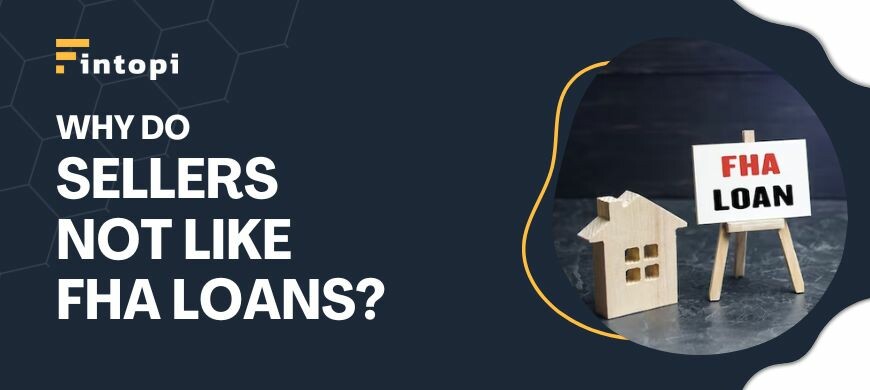The Truth About FHA Loans: Why Sellers are not Fans
If you’re in the market to buy a home, you may have heard of Federal Housing Administration (FHA) loans. These government-backed mortgages are designed to help people with lower credit scores or smaller down payments become homeowners. However, if you’re a seller, you might not be so thrilled about working with buyers who use an FHA loan.
In this article, we’ll explore why sellers often prefer conventional loans to FHA ones and what drawbacks they see in accepting offers from buyers using an FHA loan.
Why Do Some Homeowners Refuse to Accept FHA Financing?
One reason that some sellers don’t like working with buyers who use an FHA loan is that there can be more hoops to jump through during the sale process. For example, when someone applies for an FHA loan, the lender will require an appraisal of the property being purchased.
If any issues come up during the appraisal process — such as problems with the roof or foundation, then those issues must be addressed before closing on the sale. This can create delays and expenses for both parties. Since these appraisals are required by law, it’s possible that other potential buyers could encounter similar issues during their own inspections.
A Look at the Downsides of Choosing an FHA Loan as a Seller
While there are certainly benefits associated with obtaining funding via federal housing administration programs, choosing between different types of mortgage products requires careful consideration based on individual circumstances.
- The appraisal process can be more stringent. FHA loans have specific appraisal requirements that must be met in order for the loan to be approved. This can include things like the property meeting certain health and safety standards, such as having a functioning HVAC system, proper electrical wiring, and no peeling paint or broken windows.If the home does not meet these requirements, the seller may be required to make repairs or improvements before the loan can be approved, which can delay the sale process.
- FHA appraisals have specific requirements. In addition to health and safety standards, FHA appraisals also have specific requirements related to the condition of the property. For example, the roof must have a remaining life of at least two years, and the property cannot have any active termite infestations.If these requirements are not met, the seller may be required to make repairs or improvements, which can add additional time and cost to the sale process.
- Mortgage insurance premiums (MIP) are required. FHA loans require borrowers to pay an upfront mortgage insurance premium (UFMIP) and an annual mortgage insurance premium (MIP). These premiums are designed to protect the lender in case the borrower defaults on the loan.While these premiums can be rolled into the loan, they do increase the overall cost, which may make it less attractive to some buyers.
- Lower loan limits. FHA loans have lower loan limits than conventional loans, which means that buyers may not be able to afford homes in certain areas. This can limit the pool of potential buyers for sellers, which can make it harder to sell the property.
It’s crucial to note that since FHA loans are government-backed, they require more paperwork and documentation than conventional loans. This can imply more time and cost to the sale process, as well as make it more complicated for the seller to navigate.
Why Some Sellers Prefer Conventional Loans Over FHA Ones
Conventional loans typically offer better interest rates than those provided by government-backed mortgages. There are several reasons why some sellers may prefer conventional loans over FHA loans.
- Less stringent appraisal requirements. Conventional loans have fewer appraisal requirements than FHA loans. This can make it easier and faster for sellers to close on the sale of their property without having to make costly repairs or improvements.
- No mortgage insurance requirement. Unlike FHA loans, conventional loans do not require borrowers to pay mortgage insurance premiums. This can make conventional loans more attractive to buyers because it lowers their monthly payments and overall loan costs.
- Higher loan limits. Conventional loans generally have higher limits than FHA loans, which can make them more attractive to buyers looking to purchase higher-priced homes. This can expand the pool of potential buyers and make it easier to sell the property.
- Faster closing process. Because conventional loans have fewer requirements and less paperwork than FHA loans, the closing process can be faster and less complicated. This can be beneficial for sellers who want to close on the sale of their property as quickly as possible.
- No government involvement. Conventional loans are not backed by the government, which can make them more attractive to sellers who prefer to have no government involvement in the sale of their property.
Conclusion
While FHA loans can be a great option for many homebuyers, they are not always the best choice for sellers. The stricter appraisal requirements, potential delays in the underwriting process, mortgage insurance premiums, lower loan limits, and credit score requirements associated with FHA loans can make them less attractive.



